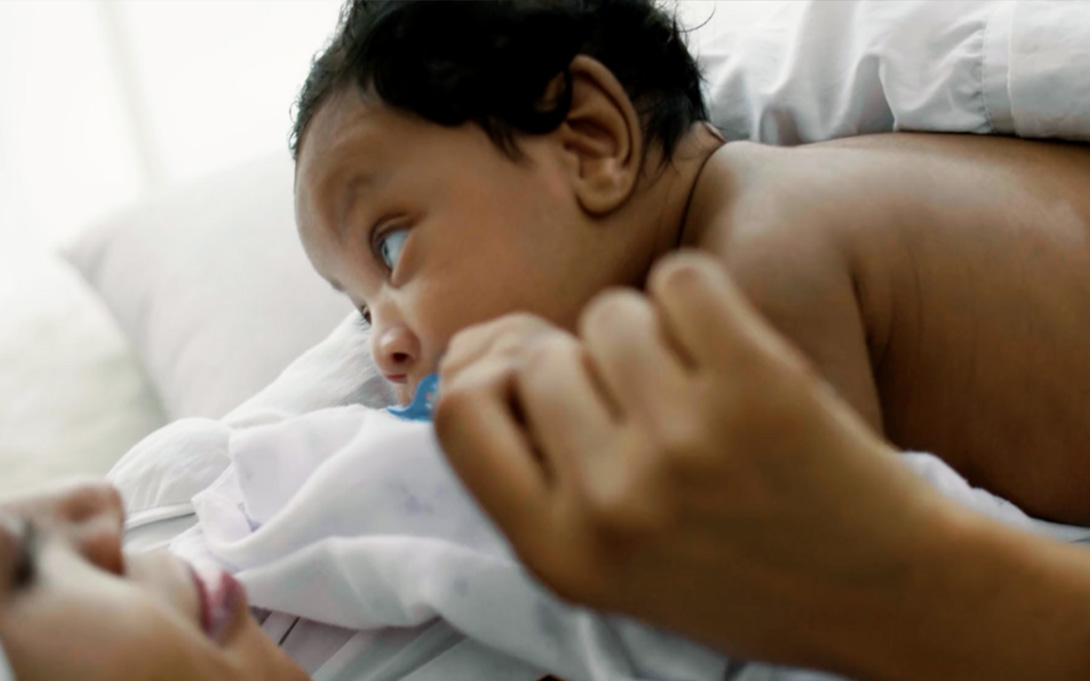
The Charles Stewart Mott Foundation intends to grant up to $15 million over three years to Michigan State University to support the launch of Rx Kids, an innovative initiative to provide direct cash payments to mothers in Flint during pregnancy and throughout the first year of a child’s life. The program is led by Dr. Mona Hanna-Attisha at the MSU College of Human Medicine.
A collaboration between MSU and the University of Michigan, Rx Kids has partnered with a national expert on child allowances, Professor H. Luke Shaefer. As director of Poverty Solutions at U-M, Shaefer has a long record of working collaboratively with communities and policymakers to find new ways to prevent and alleviate poverty.
Through Rx Kids, families will be “prescribed” a total of $7,500 in cash. This will include a one-time $1,500 payment to expectant mothers in midpregnancy, followed by $500 per month for the first year of a child’s life. All pregnant women and infants who are residents of the city of Flint will be eligible for the program, regardless of the mother’s or family’s income, and families can spend the money in whatever way they think is best. It will be the first citywide program of its kind in the United States.
MSU plans to begin enrollment for the program in 2024 with the intent of continuing the initiative for at least five birth years of expectant mothers and newborns.
“We’re supporting Rx Kids because of the boldness of its approach to significantly reducing childhood poverty and associated negative health effects,” said Ridgway White, Mott Foundation president and CEO. “While similar projects elsewhere have focused on smaller or more unique cohorts, nothing like this has been done on a citywide scale. We’re excited to see how it could help children and families — both in Flint and throughout the country.”
According to five-year estimates from the U.S. Census Bureau’s 2020 American Community Survey, Flint’s overall childhood poverty rate is approximately 50% — far above the state and national rates of approximately 16%. In many areas of Flint, the poverty rate for kids under 5 exceeds 80%. The impacts of poverty, the water crisis and the pandemic mean local children face daunting obstacles to growing up healthy.
By providing funds that families can use for whatever they need most, Rx Kids aims to disrupt a root cause of inequities and disparities while supporting families with dignity and trust during the developmentally crucial first year of a child’s life.
“Early childhood science has demonstrated the lifelong consequences of adversity, but also the promise of bold, preventative and justice-driven interventions,” said Hanna-Attisha, associate dean for public health and Charles Stewart Mott endowed professor of public health at the MSU College of Human Medicine. A nationally recognized pediatrician, Hanna-Attisha is the founding director of the MSU-Hurley Children’s Hospital Pediatric Public Health Initiative, a model community-partnered program working to improve child health equity. “Driven by our visionary Flint parents and children, Rx Kids is a much-needed infusion of joy, hope and opportunity for the entire city. Rx Kids is another example of Flint shining a spotlight on injustice and rolling up our sleeves to systemically build a better tomorrow not just for Flint kids — but for kids and communities everywhere.”
Shaefer is the Hermann and Amalie Kohn Professor of Social Justice and Social Policy and associate dean at U-M’s Ford School of Public Policy.
“The evidence is piling up that direct cash payments to families with children are an incredibly effective way to reduce child poverty and improve health and well-being. Rx Kids takes this work to the next level,” said Shaefer. “We’re excited to see the immense good that can be accomplished by supporting all expectant and new mothers across the entire city of Flint, and to share these lessons with the nation.”
The groundbreaking initiative includes a growing list of partners and endorsers. The Greater Flint Health Coalition will serve as a key community partner, supporting outreach and increasing awareness of and participation in the program. Rx Kids will be administered by GiveDirectly, an international leader in direct cash transfers.
Rx Kids is expected to garner significant attention by contributing to the field of research on anti-poverty, prenatal and early childhood investments, and their effects on health equity, and by informing policy at the local, state and national levels.
The project is estimated to cost a total of $55 million for five birth years of mothers and babies. The Rx Kids team is actively pursuing additional public and private funding for the program. The Mott Foundation is structuring its intended support as a $15 million challenge grant — a one-to-one match that will unlock once Rx Kids raises an additional $15 million from other sources.
To learn more about Rx Kids, visit www.FlintRxKids.com.
You can read the original release courtesy of the Mott Foundation
